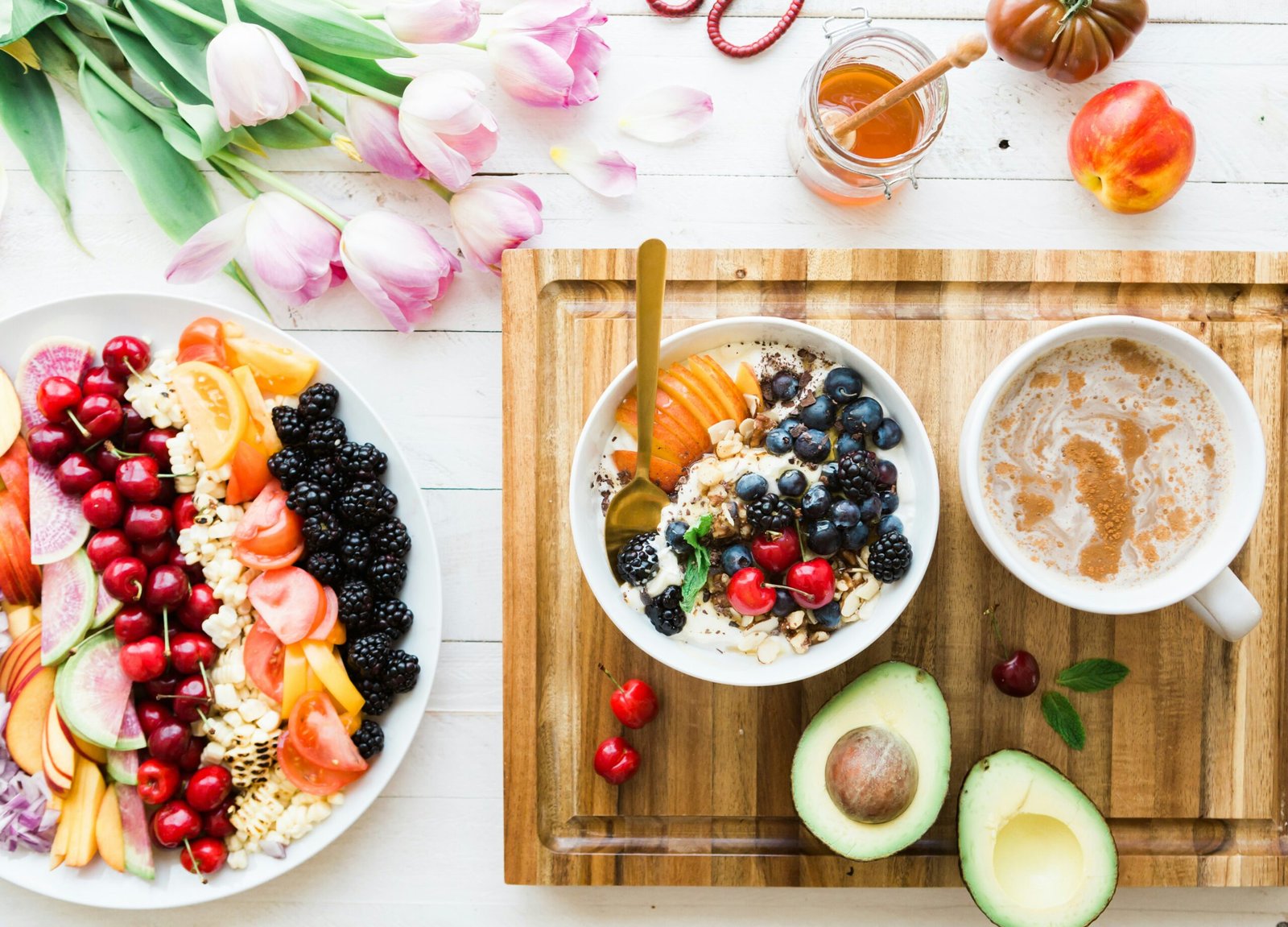Introduction to Holistic Weight Loss
Holistic weight loss is an integrative approach that considers the entire person—body, mind, and spirit—rather than merely focusing on the number on the scale. This method posits that achieving lasting weight loss and optimal health requires a comprehensive strategy addressing various aspects of one’s life. Unlike conventional weight loss programs that primarily emphasize calorie counting and exercise, holistic weight loss seeks to create a balanced, sustainable, and healthful lifestyle.
One of the key components of holistic weight loss is dietary changes. This involves not only reducing calorie intake but also focusing on nutrient-dense foods that fuel the body efficiently. Emphasis is placed on whole foods such as fruits, vegetables, lean proteins, and whole grains, which provide essential vitamins, minerals, and antioxidants. A balanced diet helps regulate metabolism, improve digestion, and maintain energy levels, making it easier to achieve and sustain a healthy weight.
Exercise routines are another critical element in this approach. Holistic weight loss promotes physical activities that are enjoyable and sustainable, encouraging consistency and long-term adherence. This can include a mix of cardiovascular exercises, strength training, and flexibility workouts. Regular physical activity not only aids in burning calories but also enhances muscle mass, improves cardiovascular health, and boosts mental well-being.
Lifestyle adjustments are also integral to holistic weight loss. These changes may encompass better sleep hygiene, stress management techniques, and reducing exposure to toxins. Quality sleep is crucial for metabolic health, while effective stress management can prevent emotional eating and other unhealthy coping mechanisms. Reducing environmental toxins can further support the body’s natural detoxification processes, promoting overall well-being.
Lastly, mental health strategies play a significant role in this holistic approach. A positive mindset, mindfulness practices, and emotional resilience are essential for sustaining weight loss. Techniques such as meditation, yoga, and cognitive-behavioral therapy can help individuals develop a healthier relationship with food and their bodies. Addressing emotional and psychological factors ensures that weight loss efforts are more effective and enduring.
By integrating these components—dietary changes, exercise routines, lifestyle adjustments, and mental health strategies—holistic weight loss provides a balanced and sustainable path to achieving health goals. It emphasizes the interconnectedness of physical, mental, and emotional health, fostering a comprehensive and fulfilling approach to well-being.
Practical Dietary Tips for Weight Loss
Achieving your health goals, particularly weight loss, involves a multifaceted approach where diet plays a crucial role. Understanding the basics of macronutrients—proteins, carbohydrates, and fats—is essential. Proteins are vital for muscle repair and growth, carbohydrates provide energy, and fats are necessary for hormone regulation and cell health. Balancing these macronutrients can help you create a diet that supports weight loss while ensuring your body receives necessary nutrients.
Portion control is another critical aspect of weight loss. Even healthy foods can contribute to weight gain if consumed in excessive quantities. Using smaller plates, measuring servings, and being mindful of hunger cues can help manage portion sizes effectively. Additionally, incorporating more fruits, vegetables, and whole grains into your diet can enhance satiety and reduce calorie intake.
Hydration is often overlooked in weight loss efforts but is equally important. Drinking adequate water helps maintain metabolism and can sometimes curb hunger, as thirst is frequently mistaken for hunger. Aim to drink at least eight glasses of water per day, and consider starting your meals with a glass of water to promote fullness.
Making healthier food choices is foundational to a successful weight loss journey. Opt for lean proteins like chicken, turkey, and fish, and choose complex carbohydrates such as brown rice, quinoa, and sweet potatoes. Healthy fats, including avocados, nuts, and olive oil, should be consumed in moderation. Reducing processed foods, sugars, and high-fat dairy products can significantly impact your weight loss progress.
Meal planning and preparation can make a substantial difference in achieving sustainable weight loss. Devote time each week to plan your meals, create a shopping list, and prepare ingredients. This practice not only ensures you eat healthily but also helps avoid impulsive, unhealthy food choices. Preparing meals in advance can save time and reduce the temptation to opt for convenience foods that are often high in calories and low in nutrition.
By understanding macronutrients, practicing portion control, staying hydrated, making healthier food choices, and planning your meals, you can create a dietary regimen that supports your weight loss goals effectively and sustainably.
Effective Exercise Routines
Establishing an effective exercise routine is a cornerstone in the journey toward achieving weight loss goals. Tailoring your workout regimen to include a variety of exercise types can significantly enhance your results. One of the key components is cardiovascular exercise, often referred to as cardio. Activities such as running, cycling, and swimming increase your heart rate, which helps burn calories and can contribute to fat loss.
Strength training is another vital element of an effective exercise routine. Incorporating weight lifting or bodyweight exercises like push-ups and squats helps build muscle mass. Muscle tissue burns more calories at rest compared to fat tissue, which means a higher metabolism and more efficient weight loss. Additionally, strength training can improve bone density and overall body strength.
High-Intensity Interval Training (HIIT) is a popular and efficient workout strategy for weight loss. HIIT involves short bursts of intense activity followed by brief periods of rest or low-intensity exercise. This method not only helps burn calories during the workout but also increases the metabolic rate for hours afterward, a phenomenon known as the afterburn effect. Examples of HIIT exercises include sprinting, kettlebell swings, and jump squats.
Flexibility exercises, such as yoga and stretching routines, play a crucial role in a balanced exercise regimen. These activities improve the range of motion, reduce the risk of injury, and promote muscle recovery. Flexibility training can also aid in stress reduction and enhance overall well-being, supporting a holistic approach to weight loss.
Creating a balanced exercise regimen means integrating these different types of workouts into your routine. For beginners, starting with moderate cardio and basic strength training exercises can gradually build fitness levels. As you progress, incorporating HIIT sessions and regular flexibility exercises can optimize your weight loss journey. Remember, consistency is key, and finding a routine that fits your lifestyle will ensure long-term success.
Essential Lifestyle Changes
Achieving your health goals, especially when it comes to weight loss, requires more than just dietary adjustments and exercise routines. It involves a holistic approach that encompasses essential lifestyle changes. One of the foundational aspects of a successful weight loss journey is sleep hygiene. Adequate sleep is crucial as it regulates hormones that control hunger and appetite, such as ghrelin and leptin. Poor sleep can lead to increased cravings and a higher propensity for weight gain. Therefore, establishing a consistent sleep schedule and creating a restful environment are vital steps.
Stress management is another critical element. Chronic stress triggers the release of cortisol, a hormone that can lead to increased fat storage, particularly around the abdominal area. Incorporating stress-reducing practices such as mindfulness meditation, yoga, or even regular physical activity can significantly impact your weight loss efforts. These activities not only help in managing stress but also contribute to overall well-being.
Consistency in daily routines plays a pivotal role. A structured day helps in maintaining a balanced diet and regular exercise regimen. Planning meals ahead, setting specific workout times, and even scheduling breaks can create a sense of order that supports your weight loss goals. Small, incremental changes in daily habits can lead to significant, long-term results. For instance, opting for stairs instead of the elevator, walking during phone calls, or even standing desks can make a considerable difference over time.
In summary, the journey to achieve your health goals is multifaceted. By focusing on sleep hygiene, effective stress management, and maintaining a consistent daily routine, these essential lifestyle changes can provide a strong foundation for sustainable weight loss. Small, yet consistent adjustments in your daily habits can yield remarkable long-term benefits, making your weight loss journey more manageable and effective.
Mental Health Strategies
Embarking on a weight loss journey often involves more than just physical changes; the mental and emotional aspects can significantly impact the outcome. Building a positive mindset is crucial for long-term success. It’s important to start by setting realistic and achievable goals. This not only fosters a sense of accomplishment but also maintains motivation. Utilizing positive affirmations can help reinforce your commitment and keep negative thoughts at bay.
Dealing with setbacks is another critical component. Understand that setbacks are a normal part of any journey. Instead of viewing them as failures, consider them as learning opportunities. Reflect on what triggered the setback and develop strategies to overcome similar challenges in the future. Practicing self-compassion during these times is essential. Self-criticism can often lead to a downward spiral, whereas self-compassion encourages resilience and a balanced perspective.
Mindfulness and meditation are powerful tools in the realm of mental health strategies. Mindfulness helps you stay present and fully engage with your weight loss efforts without being overwhelmed by anxiety or stress. It allows you to listen to your body’s needs, making it easier to make healthier choices. Meditation, on the other hand, can reduce stress and improve emotional regulation, which are key factors in maintaining healthy habits. Regular meditation practice can also enhance your ability to stay focused and disciplined.
Staying motivated can be challenging, but integrating small, consistent practices can make a significant difference. Create a support network consisting of friends, family, or online communities who share similar goals. Sharing your experiences and receiving encouragement can bolster your resolve. Additionally, tracking your progress through journals or apps can provide visual evidence of your achievements, further fueling your motivation.
Ultimately, mental health strategies play an indispensable role in achieving your weight loss goals. By fostering a positive mindset, handling setbacks with grace, and incorporating mindfulness and meditation, you can create a sustainable and holistic approach to weight loss. Embracing these strategies can lead to not only physical transformation but also a more balanced and fulfilling life.
Expert Advice and Guidance
Embarking on a weight loss journey can be daunting, but the insights and guidance from experts can provide the much-needed support and direction. Dietitians, personal trainers, and psychologists, who specialize in weight loss, offer a wealth of knowledge that can help individuals make informed decisions and adopt sustainable practices.
Dietitians emphasize the importance of a balanced diet tailored to individual needs. According to registered dietitian Jane Doe, “It’s essential to focus on nutrient-dense foods that provide the body with the vitamins and minerals it needs.” She suggests incorporating a variety of fruits, vegetables, lean proteins, and whole grains into daily meals. Jane also advises against extreme dieting, which can lead to nutrient deficiencies and unsustainable weight loss.
Personal trainers play a crucial role in developing effective workout routines. Certified personal trainer John Smith highlights the significance of consistency and progression in exercise. “Start with manageable workouts and gradually increase the intensity,” he recommends. John also underscores the importance of incorporating both cardiovascular exercises and strength training to boost metabolism and build muscle mass. He suggests finding activities that are enjoyable, as this increases the likelihood of adherence to the exercise routine.
Psychologists contribute by addressing the mental and emotional aspects of weight loss. Dr. Emily Brown, a clinical psychologist specializing in weight management, explains that “emotional eating and stress can significantly impact one’s ability to lose weight.” She recommends mindfulness practices and stress management techniques, such as meditation and journaling, to help individuals develop a healthier relationship with food. Dr. Brown also emphasizes the importance of setting realistic goals and celebrating small victories along the way.
By integrating the advice from these experts, individuals can create a holistic and balanced approach to weight loss. The combination of a nutritious diet, consistent exercise, and mental well-being forms the foundation for achieving long-term health goals.
Healthy Recipes for Weight Loss
Eating healthy doesn’t have to be bland or boring. In fact, with the right recipes, you can enjoy delicious meals that support your weight loss journey. Below, you’ll find a collection of easy-to-make recipes categorized by meal type—breakfast, lunch, dinner, and snacks. Each recipe is designed to be nutritious and satisfying, helping you achieve your health goals without sacrificing taste.
Breakfast
Avocado Toast with Poached Egg: Start your day with a nutrient-dense meal. Simply toast a slice of whole-grain bread, mash half an avocado onto the toast, and top with a poached egg. Season with salt, pepper, and a sprinkle of red pepper flakes. This meal provides healthy fats, protein, and fiber to keep you full until lunchtime.
Berry Smoothie Bowl: Blend a cup of mixed berries, half a banana, and a cup of unsweetened almond milk until smooth. Pour into a bowl and top with a tablespoon of chia seeds, a handful of granola, and a few slices of fresh fruit. This vibrant breakfast is packed with antioxidants and vitamins.
Lunch
Quinoa Salad with Chickpeas: Cook a cup of quinoa according to package instructions and let it cool. In a large bowl, mix the quinoa with a can of rinsed chickpeas, chopped cucumber, cherry tomatoes, red onion, and parsley. Dress with a simple lemon vinaigrette (lemon juice, olive oil, salt, and pepper). This salad is a great source of plant-based protein and fiber.
Grilled Chicken Wrap: Grill a chicken breast and slice into strips. Place the chicken on a whole-wheat tortilla and add mixed greens, sliced avocado, and a drizzle of Greek yogurt dressing. Roll up the tortilla and enjoy a balanced, protein-packed lunch.
Dinner
Baked Salmon with Asparagus: Preheat your oven to 400°F (200°C). Place a salmon fillet on a baking sheet lined with parchment paper. Season with salt, pepper, and a squeeze of lemon juice. Arrange a bunch of asparagus spears around the salmon and drizzle with olive oil. Bake for 15-20 minutes until the salmon is cooked through and the asparagus is tender.
Vegetable Stir-Fry: In a large pan, heat a tablespoon of sesame oil over medium-high heat. Add sliced bell peppers, broccoli florets, snap peas, and carrots. Stir-fry for 5-7 minutes until the vegetables are tender-crisp. Add a splash of low-sodium soy sauce and a teaspoon of grated ginger. Serve over brown rice or quinoa for a nutrient-rich dinner.
Snacks
Greek Yogurt with Honey and Nuts: Enjoy a bowl of Greek yogurt topped with a drizzle of honey and a handful of mixed nuts. This snack is high in protein and healthy fats, making it perfect for keeping hunger at bay between meals.
Apple Slices with Almond Butter: Slice an apple and serve with a tablespoon of almond butter for a quick and satisfying snack. The fiber in the apple and the protein in the almond butter will help keep you full and energized.
By incorporating these healthy recipes into your daily routine, you can enjoy delicious meals that support your weight loss goals. Remember, eating well is not just about cutting calories but about nourishing your body with the right nutrients.
Inspiring Weight Loss Stories
Embarking on a weight loss journey can often feel daunting and overwhelming. However, the experiences of individuals who have successfully achieved their health goals through a holistic approach can serve as powerful motivation. These real-life weight loss stories demonstrate that significant transformations are not only possible but also sustainable when approached with dedication and the right support.
Consider the story of Jane, a 35-year-old mother of two, who struggled with weight gain for years. Jane decided to adopt a holistic approach to weight loss, focusing on balanced nutrition, regular physical activity, and mental well-being. Through mindful eating and incorporating more whole foods into her diet, Jane managed to shed 40 pounds over the course of a year. She also found solace in yoga and meditation, which helped her manage stress and maintain a positive mindset. Jane’s journey is a testament to the power of a comprehensive approach to health and wellness.
Another inspiring story is that of Mark, a 50-year-old businessman who had battled obesity for most of his adult life. Mark’s turning point came when he realized that quick fixes and fad diets were not yielding lasting results. He embraced a holistic lifestyle, which included consulting a nutritionist to tailor a diet plan specific to his needs, engaging in regular cardiovascular and strength-training exercises, and seeking therapy to address emotional eating habits. Over two years, Mark lost 80 pounds and significantly improved his overall health. His transformation underscores the importance of addressing both physical and emotional aspects of weight loss.
These inspiring weight loss stories highlight that achieving health goals is a multifaceted endeavor. Individuals like Jane and Mark exemplify how a holistic approach can lead to lasting change. Their journeys encourage others to pursue their health goals with perseverance and the right support system, proving that significant, sustainable weight loss is within reach for everyone.




